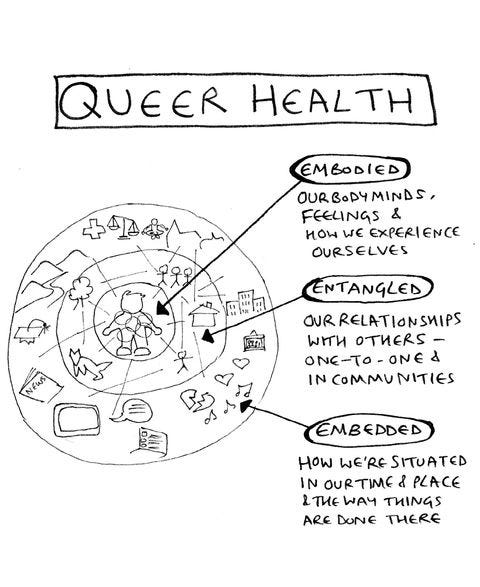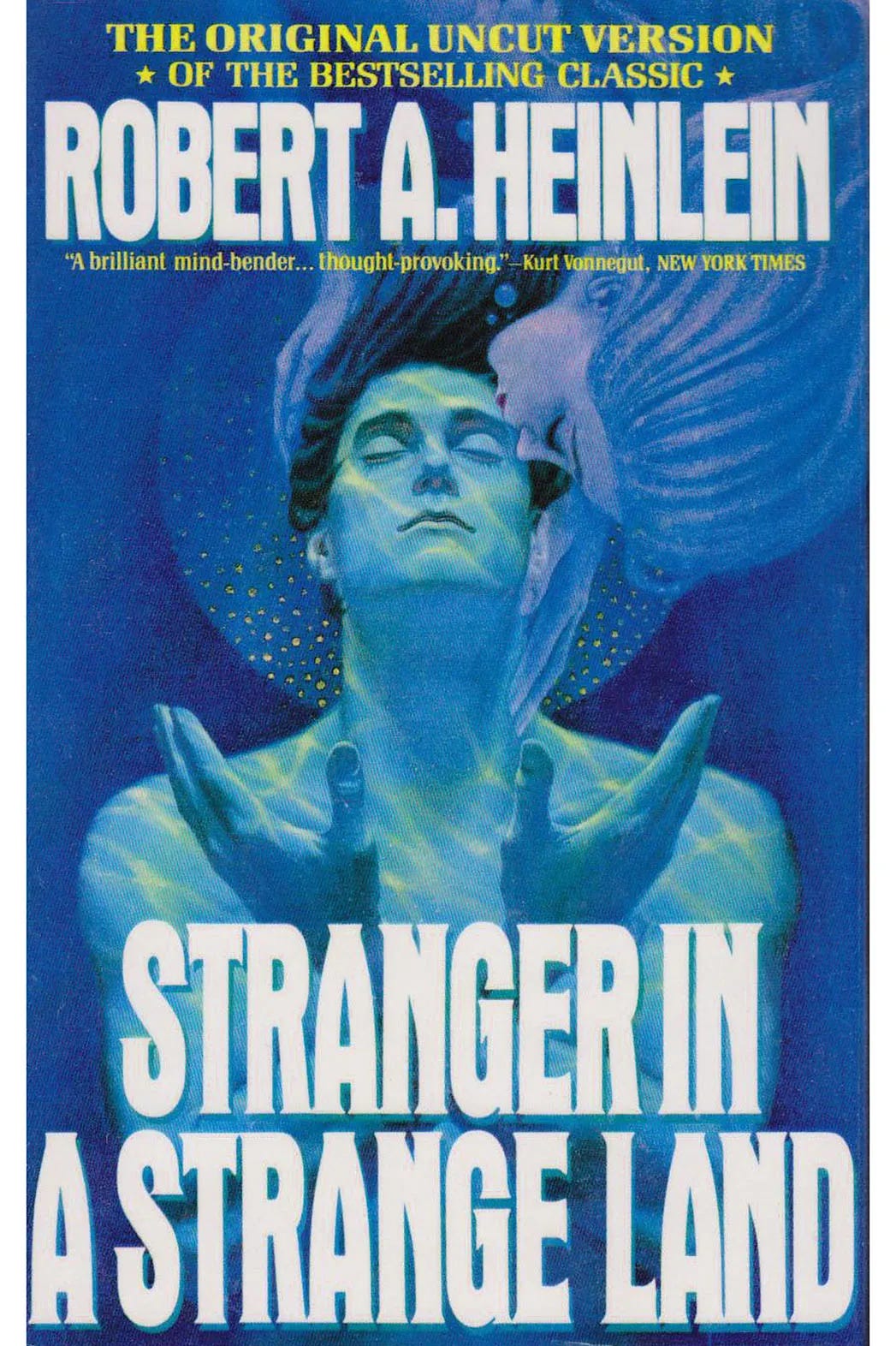🦝✨The Nexialist #0141
the art of saying nothing | how individualism undermines systemic change | žižek vs woke-ism | queer health | got me started | grok | a dweller on two planets | lemuria | a conspiracy of lemurs
welcome to another week of cyber cherry-picking, the nexialist
hey, you! i hope this message finds you well a inattentive (as i used a raccoon emoji instead of a lemur, which still doesn’t exist.) this week’s nexialist will be a continuation of last week’s themes. sometimes i’m too ambitious with the amount of content i bring, but substack tells me it’s too long so i have to be my own mean editor and chop things away —and then bring them sometime in the future —which is me being sneaky. so, that’s it for today! enjoy the links, the face-slaps and the brainsparks! 🫀✨
1 year ago » 🕸✨The Nexialist #0089 : iranian girls and women | evangelical missionaries x indigenous people | nuda | spray-on dress | that girl | unholy | millenium
2 years ago » ⚙️✨The Nexialist #0040 : Lollygag | A Measure of Sacrifice | Solarpunk and the End of Capitalism | Dark Solarpunk | Antiwork
🤫the art of saying nothing
last week, the “what about me effect” and the “ultracrepidarian” kicked off the edition. then, after sending the newsletter, this video popped up: a 1996 clip from a fiona apple interview with jay leno. such a cool attitude, with a simple yet effective message for us.
i’m not shy. that’s a big misconception about me. i’m not shy, i just don’t speak if i don’t have anything to say. that’s what tact is. tact is the art of saying nothing when there is nothing to say.
brainsparks: ultracrepidarian (tn#140)
♻️how individualism undermines systemic change
tomas klaffke posted a couple of weeks ago this text: From Self-Reform to Worldview-Reform. somehow, in this short text, he manages to do some sort of plot twists. in a nutshell, in an increasingly individualistic society, we are made to believe we’ll not only run after the things we want, but we also can solve things on our own. then, industries push to those individualistic individuals (us) the idea that by doing certain things, we’ll solve certain issues. and we buy that idea. and guess what, the system stays the same (or worsens.)
the image above also got me. i first thought the system-level changes were pushed by the individual-level actions (just as i’ve been “trained” to think.) but it actually shows how the solutions provided on the individual level can bring superficial change, while systemic-level actions would actually bring us deeper change. the post brings more insights and depth, so i recommend reading it.
via
brainsparks: what about me effect (tn#140), degrow your mind (tn#117)
👁️žižek vs woke-ism
this had been saved in my “nexialist” folder on instagram for a while. if you haven’t seen it,
is explaining in 60 seconds Slavoj Žižek’s stance against woke-ism, which connects perfectly to the individual x systemic change. here is a snippet:Žižek argues that what he calls woke culture allows us to wake up in order to stay asleep. what he means by that is that certain liberal progressive consumptive practices, like ethical consumption, virtue signalling, buying a cup of coffee to eliminate poverty, etc allow us to feel like we’re the better person, whilst nevertheless failing to really address the underlying structural systemic injustices and exploitations necessitated for us to persist in our capitalist consumer lifestyles.
🏳️🌈queer health
thank you to whoever shared this on my instagram (i lost track of it, sorry, but this has been in my head since i saw it). some time ago, i brought the queering the future (tn#5) idea. now, seeing the queer verb applied to healthcare is quite powerful. it amplifies the idea of health, which today is quite siloed, into embodied, entangled and embedded dimensions.
* What are some healthcare disparities or challenges that LGBTQ+ individuals may face?
* How do we shift our approach to health away from the 'illness vs. wellness' binary and move towards a more holistic and inclusive understanding?
In our Queering Creative Health Report, our findings explore queer health through Relational, Care(ful) and Non-Linear dimensions. Sitting in contrast to the dominant biomedical model of health that has acted as the foundation for healthcare.
brainsparks: queering the future (tn#5), ronfenbrenner's bioecological model (tn#85)
🪩got me started
i’ve been in love with troye sivan’s new era, and this new song and video are just make me smile the whole time. the dancing, the outfits and the shots make me melt while watching it.
🫀grok
grok (transitive verb): to understand profoundly and intuitively
Did you know? Grok may be the only English word that derives from Martian. Yes, we do mean the language of the planet Mars. No, we're not getting spacey; we've just ventured into the realm of science fiction.
Stranger in a Strange Land, classic science fiction novel by American writer Robert A. Heinlein, published in 1961. The work centres on a human raised on Mars who comes to Earth and challenges customs relating to sex, death, religion, and money. The book became an icon of the 1960s counterculture, and it won the prestigious Hugo Award for best novel in 1962. Grok was quickly adopted by the youth culture of America and has since peppered the vernacular of those who grok it.
this weird word, which i was not familiar with, showed up in my inbox and, it reminded me of sonder (tn#1). i loved its meaning, but even more its origin. i will be adopting this one. (also, i am a bit creeped out by the similarity of the book cover and the thumbnail of troye’s video).
🌎a dweller on two planets
many years before the sci-fi novel above, A Dweller on Two Planets (or The Dividing of the Way) was published by Frederick Spencer Oliver, in 1905. the book is said to be influential still today in ideas of atlantis. it is so fascinating the mix of the occult with sci-fi.
In its introduction, Oliver claims that the book had been channeled through him via automatic writing, visions and mental "dictations", by a spirit calling himself Phylos the Thibetan who revealed the story to him over a period of three years, beginning in 1883.
Concerning itself with Atlantis, it portrays a first person account of Atlantean culture which had reached a high level of technological and scientific advancement. His personal history and that of a group of souls with whom Phylos closely interacted is portrayed in the context of the social, economic, political and religious structures that shaped Poseid society. Daily life for Poseidi citizens included such things as antigravity powered air craft and submarines, television, wireless telephony, aerial water generators, air conditioners and high-speed rail. The book deals with deep esoteric subjects including karma and re-incarnation and describes Phylos' final incarnation in 19th century America where his Atlantean karma played itself out…
brainsparks: beyond the sea (tn#127)
🗺️lemuria
during last week’s map rabbit hole, i learned about lemuria, or this imaginary sunken continent that could have been the cradle of humanity. it was also mentioned in A Dweller on Two Planets. this was before the plate tectonics theory was accepted in the 1960s.
In 1864, zoologist Philip Sclater invented Lemuria to explain why lemurs lived in Madagascar and India. He was wrong, but that didn’t stop the hypothetical continent from becoming a fascination of pseudoscientists and occultists. The hypothesis was thoroughly discredited in the 1960s, but Lemuria lives on in surprising places.
…
In the American imagination, Lemuria became most closely associated with Mount Shasta in northern California, which according to Frederick Spence Oliver (in his 1894 book A Dweller on Two Planets) and other occultist writers was the last refuge of the survivors of sunken Lemuria, who lived there in a jewel-encrusted underground city called Telos.
According to some of the more outlandish theories, other survivors of sunken Lemuria turned to the sea, and became whales, dolphins and mermaids. Others have walked among humans as shamans and prophets ever since, explaining why many religions are so similar. Sadly, there is no word on whether some Lemurians actually transformed into lemurs.
brainsparks: hy-brasil + zealandia, the 8th continent (tn#39),
🦝a conspiracy of lemurs
the collectice noun of lemur is a conspiracy.
Lemurs are social animals and live in mini communities of around 10-25 members.
As a result of this, they often work together, or 'conspire' to outwit predators using a technique called 'mobbing'.
i don’t know if the conspiracy was connected to the lemuria idea, but yeah… a group of lemurs in called a conspiracy. i just love this useless information.
brainsparks: the big map of forbidden information (tn#87)
see you next week, lemurs! 🫀✨
❓If you want to know what a Nexialist is, click here.
🔎If you want to see what I’ve already posted, visit the archive and use the search engine. Even I do that a lot.
💌I want to know what you think/who you are! Your feedback is highly appreciated; you can e-mail me or fill in this short survey. Thank you! 🙏🏻
🔌Let’s Collab?
I truly believe innovation comes from bringing improbable areas together, and that’s why I called this project The Nexialist. Some sectors are known to be self-referencing and hermetic. Sometimes teams are on autopilot mode, focused on the daily grind, which hinders innovation. As a Nexialist, I like to burst these bubbles, bringing references from different areas, and maintaining teams inspired and connected to the Zeitgeist.
I offer inspiration sessions called Brainsparks, creative desk research (Zeitgeist Boost), Plug’n’Play deals for workshops and sprints, and other bespoke formats. If you want to know more about this, send me an e-mail with your challenge(s) and we can figure something out together. Check out my website and some work I’ve done below:











